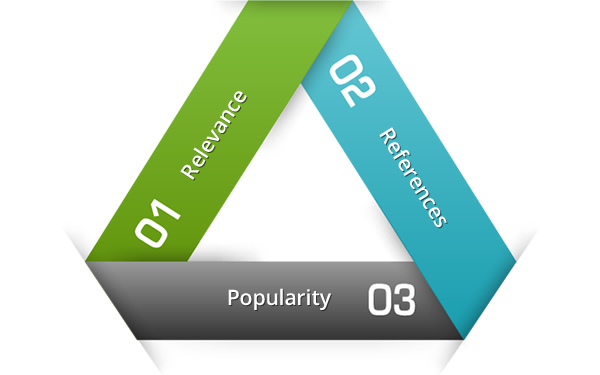Your Google Analytics
Partner in Asia Pacific
We are in the business of enabling actionable online
insights throughout this region

As you embark on your online marketing journey, you will realize that you will not be able to run away from being found by search engines. Most search engines score your site based on a few criteria, namely through Relevance, References & Popularity. Search Engine Optimization (SEO) is actually a best practice that takes into account how search engines score, in order to improve your site’s rank organically.
Relevance for a search engine ultimately refers to keywords that are used during a search activity. For example, entering “Cheap Flight to Tokyo” into a search engine will spawn all kinds of results.
When a page has the word “cheap”, “flight” or “Tokyo” in it, they will be assigned a score. If you have words that are related to the ecosystem of related words on a topic, it will be given extra points.
For elaborate further, this means that pages that contain words or phrases that are within the ecosystem of activities that are commonly associated with the search criteria such as Tokyo, Narita, Haneda, flight, travel, holiday, break, relax, business, the page rank will be scored higher.
This ultimately increases the likelihood of the Search Engine displaying your page as a possible search result.
References are a term that most search engines use to simulate the real-world scenario of asking for a references to gauge whether or not a product is reliable, or if the service provided is of quality.
For example, if you had a toothache, and if you asked your mom if she knew any good dentists around, you would generally trust her words more than a commercial because your mother does not have any intention of making money out of you and because her opinions will reflect the truth out of her concern for your well-being.
When it comes to search engines, references are detected whenever there is a hyperlink back to your site, or what is commonly known as a backlink. The more links back to your site, the higher the score. The more popular those sites are, the higher the weightage of the reference.
The more visitors your site receives, the more popular they assume your website to be for a particular topic. This will influence the score they assign to your website.
These results are crunched, scored and then ranked based on all the criteria above to generate a list of potential answers for you. They are then filtered by the availability of the results from a site within your geographical region, which are then broken down into a series of pages that could contain a list of millions of answers.
As you would have noted from now, most people don’t have the habit of going through more than the first few pages of results before they lose their attention and give up. So this is why it is important for you to rank well, or risk losing a significant amount of traffic to your website.
| Metric | Tip to improve online marketing results | ||||||
|
Relevance  |
|
||||||
|
References  |
|
||||||
|
Popularity  |
|
||||||
If you are serious in improving your site’s page rank, the table above contains a few fundamental tips that you can implement quickly in order to get concrete results.
As Google Analytics Partners, we are able to assist in planning & setting up the environment to track and measure your search engine marketing activities and relating it back to actual business results.
Getting basic insights from your search engine marketing tool is useful, but when combined with the information from your brand’s online marketing activities, they offer a clearer picture of how well your business is doing.
Let us help you identify how you can improve your Return on Investment (ROI) and accelerate your business.
Subscribe to our mailing list for the latest updates and quarterly insights from our research team.
Subscribe Now